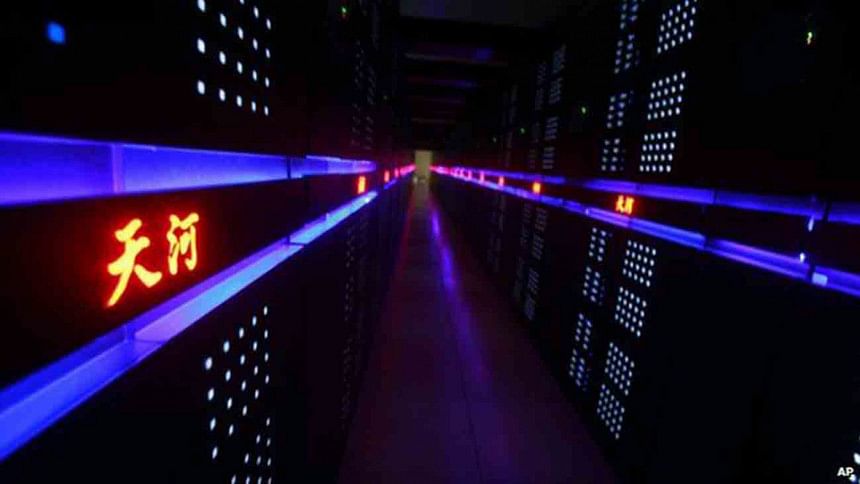Obama orders world's fastest computer

President Barack Obama has signed an executive order calling for the US to build the world's fastest computer by 2025.
The supercomputer would be 20 times quicker than the current leading machine, which is in China.
It would be capable of making one quintillion (a billion billion) calculations per second - a figure which is known as one exaflop.
A body called the National Strategic Computing Initiative (NSCI) will be set up to research and build the computer.
The US is seeking the new supercomputer, significantly faster than today's models, to perform complex simulations and aid scientific research.
It is hoped the machine would help to analyse weather data for more accurate forecasts or assist in cancer diagnoses by analysing X-ray images.
A blog post on the White House website also suggests it could allow NASA scientists to model turbulence, which might enable the design of more streamlined aircraft without the need for extensive wind tunnel testing.
Such a computer would be called an exascale machine.
BIGGER MODELS
Richard Kenway at the University of Edinburgh says he thinks the plan is "spot on" in terms of strategy, bringing together both the ambition to develop new hardware and also improved analysis of big data.
He explained the computer could aid the development of personalised medicines, tailored to specific individuals.
"Today, drugs are designed for the average human and they work OK for some people but not others," he told the BBC.
"The real challenge in precision medicine is to move from designing average drugs to designing drugs for the individual because you can know their genome and their lifestyle."
There could also be benefits in long-term climate modelling, according to Mark Parsons at the Edinburgh Parallel Computing Centre (EPCC).
Currently, climate scientists attempt to model how the Earth's climate will evolve in coming years, but the accuracy of these predictions is severely limited.

Today's fastest supercomputer, the Tianhe-2 in China's National Computer Centre, Guangzhou, performs at 33.86 petaflops (quadrillions of calculations per second), almost twice as fast as the second-quickest machine, which is American.
For Parsons, the latest US initiative is a clear attempt to challenge the dominance of the Chinese in this field.
"The US has woken up to the fact that if it wants to remain in the race it will have to invest," he told the BBC.
£60m Electricity Bill
Both Kenway and Parsons point out that the challenges of building an exascale computer are not trivial and would require years of research and development.
Chief among the obstacles, according to Parsons, is the need to make computer components much more power efficient. Even then, the electricity demands would be gargantuan.
"I'd say they're targeting around 60 megawatts, I can't imagine they'll get below that," he commented. "That's at least £60m a year just on your electricity bill."
Efforts to construct an exascale computer are not entirely new.
Recently, IBM, the Netherlands Institute for Radio Astronomy (ASTRON) and the University of Groningen announced plans to build one to analyse data from the Square Kilometre Array (SKA) radio telescope project.
SKA will be built in Australia and South Africa by the early 2020s.

 For all latest news, follow The Daily Star's Google News channel.
For all latest news, follow The Daily Star's Google News channel. 



Comments